The training session took place at Saigon University, with the participation of delegates from departments and offices under the Ministry of Education and Training ; Departments of Education and Training, and training institutions.
Deputy Minister of Education and Training Nguyen Van Phuc attended the training session and gave an orientation speech.
Ensuring practicality and science
Deputy Minister of Education and Training Nguyen Van Phuc emphasized the importance of perfecting institutions and laws in the context that the education sector is facing many requirements for comprehensive and profound innovation.
According to the Deputy Minister, the Ministry of Education and Training is currently in the process of building and completing three important law projects, including: Law amending and supplementing a number of articles of the Law on Education; Law on Higher Education (amended) and Law on Vocational Education (amended).
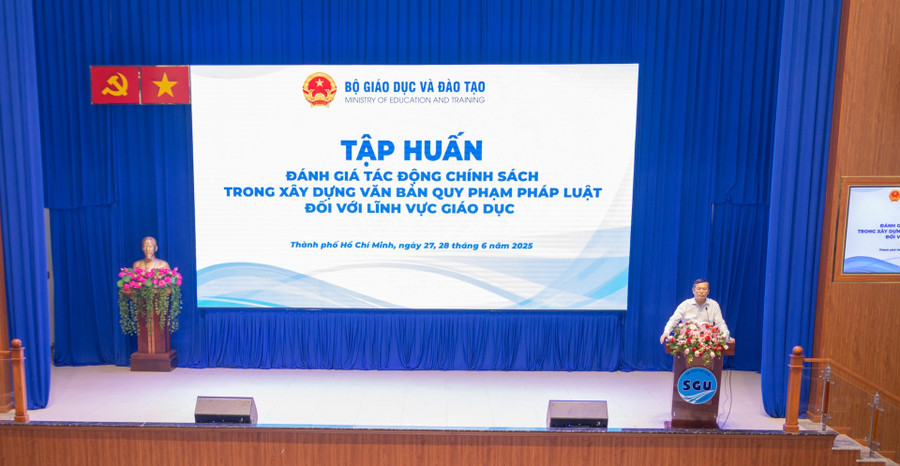
Deputy Minister Nguyen Van Phuc affirmed that the consistent spirit in the process of drafting laws is to closely follow the Party and State's orientation on education and training. All major policies of the Party, National Assembly and Government on education development must be institutionalized in the legal system.
The Deputy Minister cited that the National Assembly has just approved the exemption of tuition fees for all preschool children, primary school students and those studying general education programs. This is a major policy that needs to be specified in the draft Law on amending and supplementing a number of articles of the Law on Education.
The Deputy Minister also emphasized the practical factor in the law-making process, so that the regulations can be effectively applied in practice. The three draft laws need to be synchronous, unified, and effectively applied in practice.
Another important principle mentioned by the Deputy Minister is the reference to international experience in the law-making process. At the same time, the Deputy Minister emphasized that draft laws and related legal regulations need to have a solid educational scientific foundation. Therefore, the role of teachers, researchers and experts is extremely important.
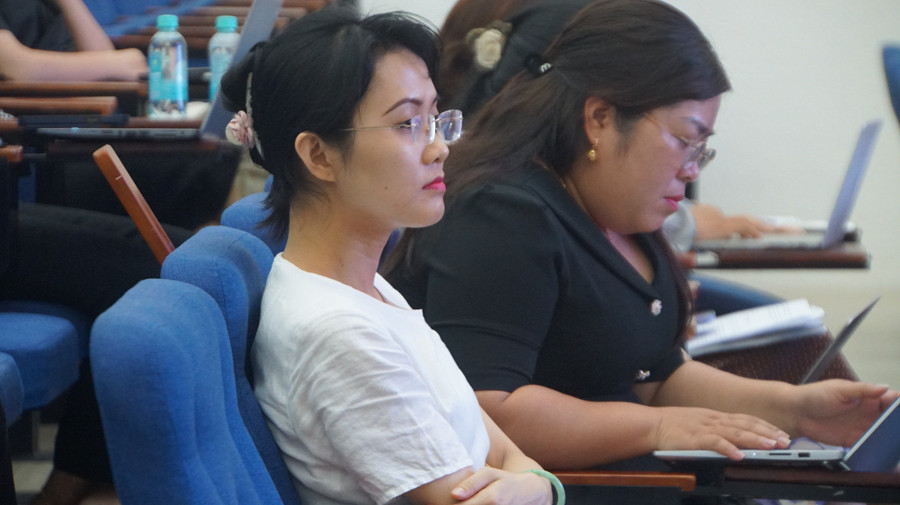
Breakthrough for quality and learner rights
At the training session, Ms. Mai Thi Anh, Director of the Legal Department (Ministry of Education and Training) reported on the legalization of the policy of the Law amending and supplementing a number of articles of the 2019 Law on Education.
Ms. Mai Thi Anh said that the context of amending the 2019 Education Law is based on the implementation of major policies of the Party such as Conclusion No. 91-KL/TW, Conclusion No. 126-KL/TW, Resolution No. 57-NQ/TW and many other documents.
At the same time, the law amendment also aims to meet the requirements of educational development in the period of digital transformation and deep international integration.
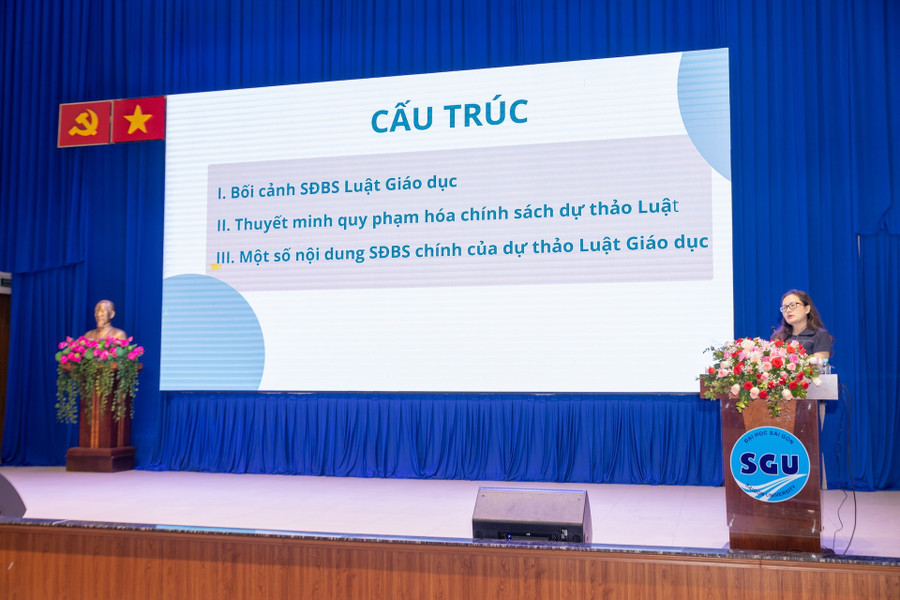
In addition, this is also a solution to address existing shortcomings in the national education system. Specifically, issues such as the School Council model at all levels of public general education, education quality assessment, and policies for teachers and administrators need to be reviewed and adjusted to suit reality.
The main objective of amending and supplementing the 2019 Law on Education is to perfect the educational institution and enhance the effectiveness and efficiency of State management of education.
Besides, this also aims to increase autonomy and decentralization for educational institutions, reduce cumbersome administrative procedures and especially ensure maximum benefits for learners.
Finally, amending the law also contributes to ensuring consistency and synchronization in the entire legal system.
The Director of the Legal Department specifically presented the major policy groups of the draft Law, including: decentralization of the granting of high school graduation certificates to educational institutions; universalization of preschool education for children aged 3-5; addition of educational personnel (other than teachers); exemption, reduction and support of tuition fees for pupils and students; not establishing School Councils in public preschool and general education institutions; building a national database on education and training; implementing compulsory education at secondary school level; English as the second language in schools and unifying the names of preschool education institutions.
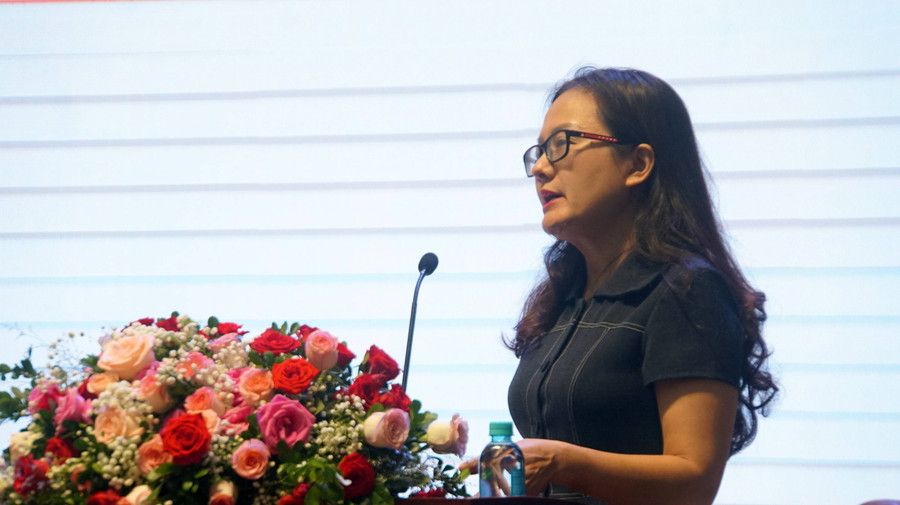
Next, Mr. Truong Anh Dung, Director of the Department of Vocational Education and Continuing Education (Ministry of Education and Training) presented a report assessing the policy impact of the draft Law on Vocational Education (amended) with 5 key points.
The first is to restructure the vocational education system, focusing on restructuring the vocational education network and developing vocational secondary school programs. This is considered one of two breakthrough policies to ensure connectivity and synchronization in the law on education and training.
Currently, career orientation, streaming and connection still have many limitations, the network of vocational training facilities is still scattered, and colleges have not been developed into national or regional centers for high-quality vocational training and practice.
Therefore, the draft law will supplement Vocational Secondary School (equivalent to high school level, in accordance with the International Education Standards Classification) and enhance career guidance for learners.
At the same time, form a streamlined and effective network of vocational training facilities and plan colleges to serve as high-quality training centers at regional and national levels.
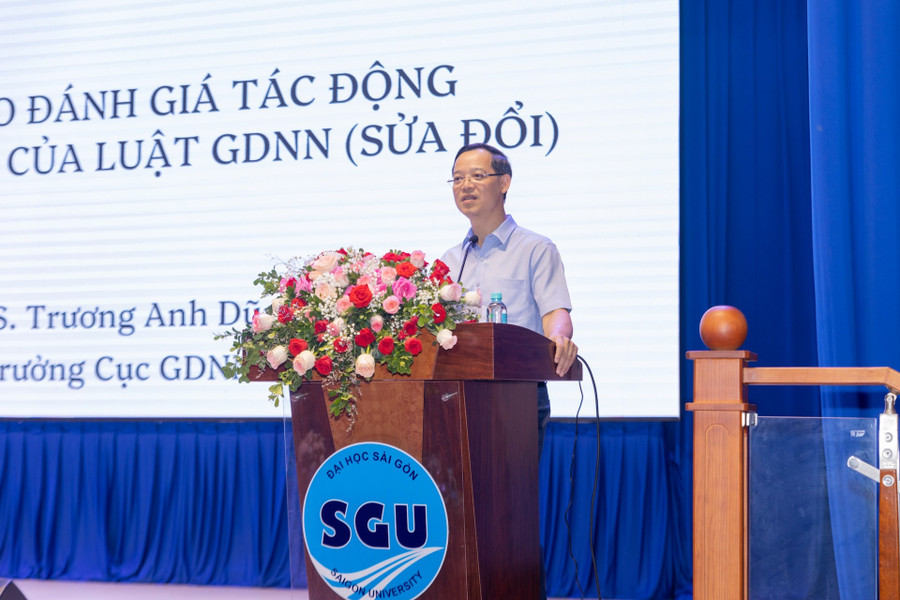
Second, the draft law will innovate training programs, organize training and ensure the quality of vocational education.
This policy focuses on innovating training programs, curricula, recognition of learning outcomes, accumulated professional competencies and quality assurance conditions, towards a higher quality vocational education system.
Third is to strengthen the role of enterprises and enhance international cooperation in vocational training. The draft law will strengthen the role of enterprises and expand international cooperation in vocational training.
The goal is to attract and further promote the participation of enterprises in vocational education, maximize resource mobilization and promote international integration.
Fourth is the innovation of financial and investment mechanisms and policies. Financial and investment policies will be innovated based on the quality, efficiency, publicity and transparency of vocational training institutions. At the same time, this group of policies will build sustainable, transparent and effective financial policies and mechanisms based on the quality of training and policies for learners.
Finally, the policy of promoting decentralization and delegation of power, improving the effectiveness of State management of vocational education. This is the second breakthrough policy in the five policies, considered a prerequisite for implementing autonomy and improving training quality.
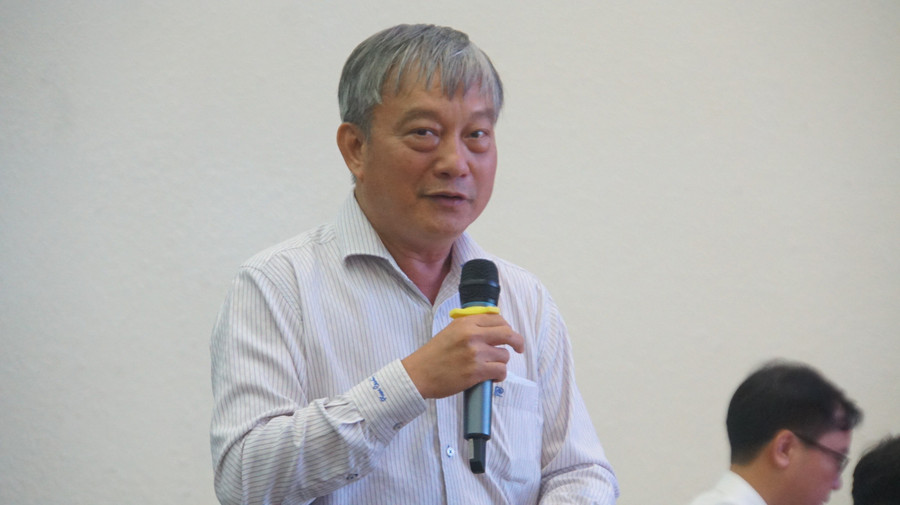
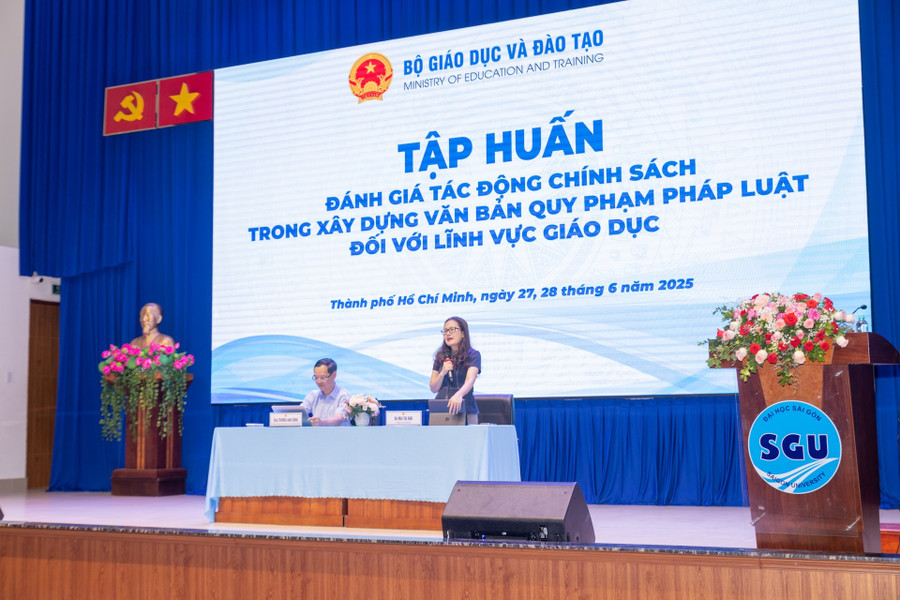
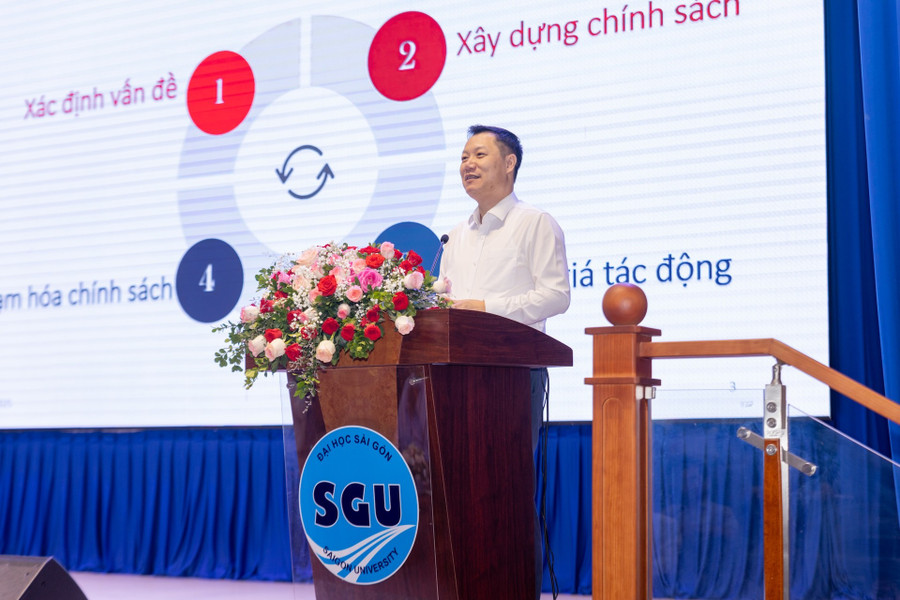
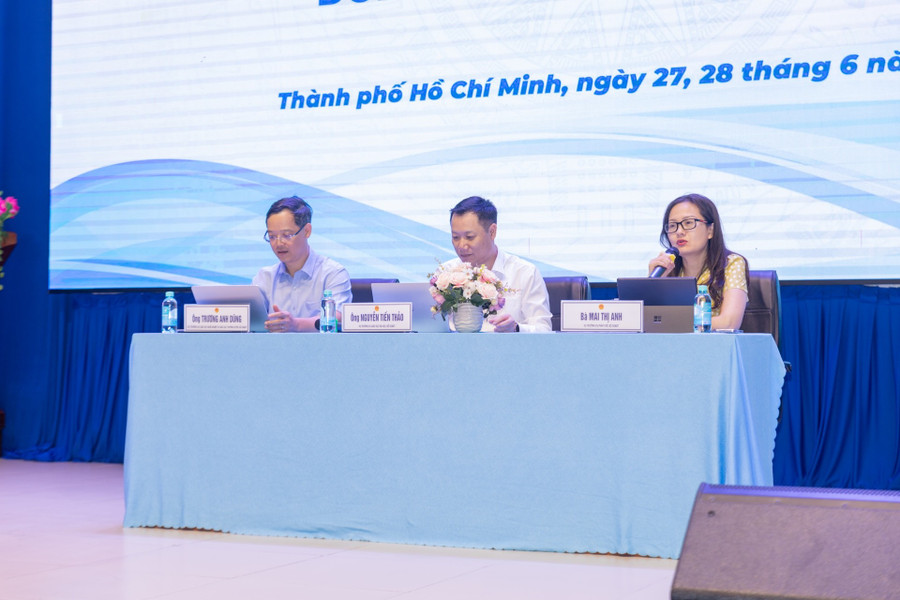
Previously, in the morning training session of the same day, Mr. Nguyen Tien Thao - Director of the Department of Higher Education (Ministry of Education and Training) presented an assessment of the policy impact on the draft Law on Higher Education (amended).
Ms. Vu Thi Thu Ha, Head of Administrative Procedure Control Department - Office of the Ministry of Education and Training presented the topic of assessing the impact of administrative procedures in the development of legal documents.
The training sessions recorded many comments on the draft laws from representatives of the Departments of Education and Training and training institutions.
Source: https://giaoducthoidai.vn/xay-dung-luat-trong-linh-vuc-giao-duc-bam-sat-thuc-tien-va-tinh-khoa-hoc-post737609.html



![[Photo] General Secretary To Lam receives Vice President of Luxshare-ICT Group (China)](https://vphoto.vietnam.vn/thumb/1200x675/vietnam/resource/IMAGE/2025/11/15/1763211137119_a1-bnd-7809-8939-jpg.webp)
![[Photo] Prime Minister Pham Minh Chinh meets with representatives of outstanding teachers](https://vphoto.vietnam.vn/thumb/1200x675/vietnam/resource/IMAGE/2025/11/15/1763215934276_dsc-0578-jpg.webp)

![[Photo] Panorama of the 2025 Community Action Awards Final Round](https://vphoto.vietnam.vn/thumb/1200x675/vietnam/resource/IMAGE/2025/11/15/1763206932975_chi-7868-jpg.webp)



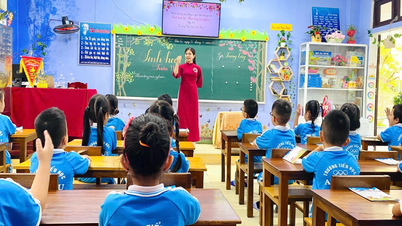


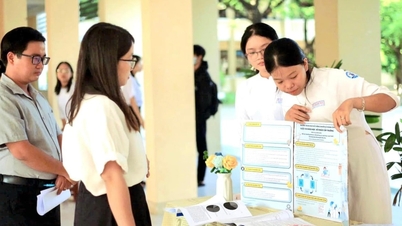

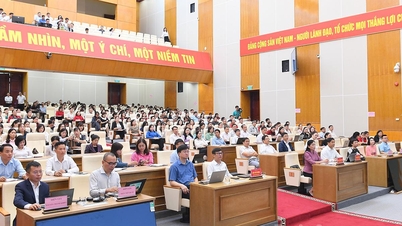


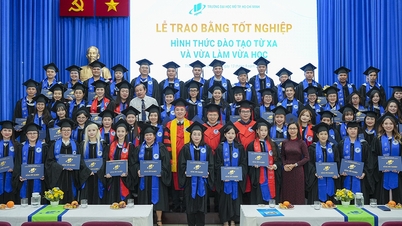

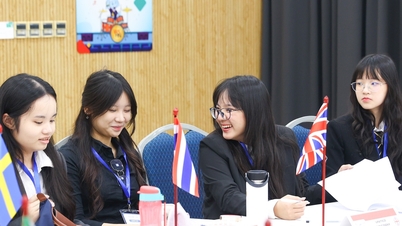



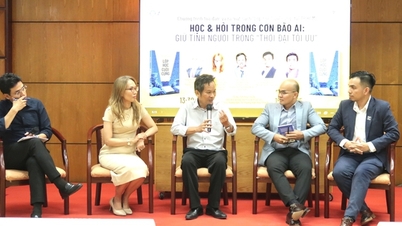







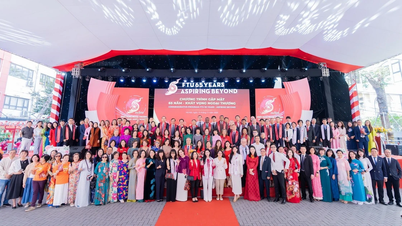


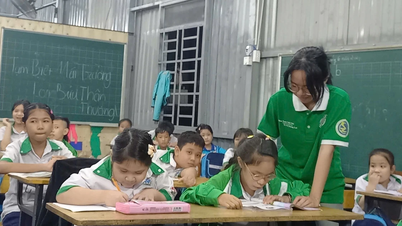


















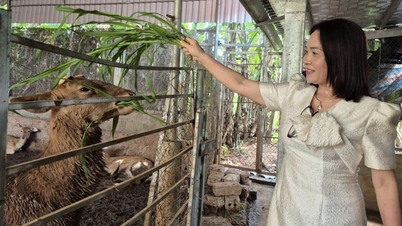

















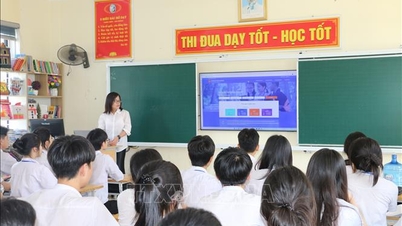





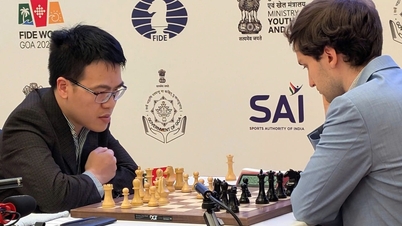










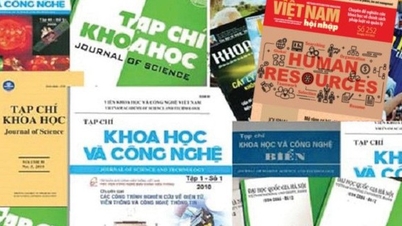


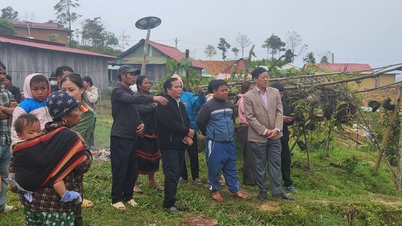

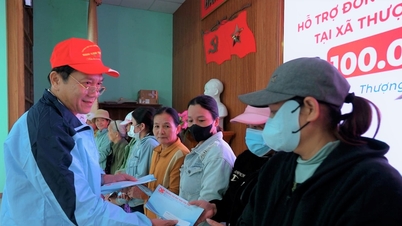
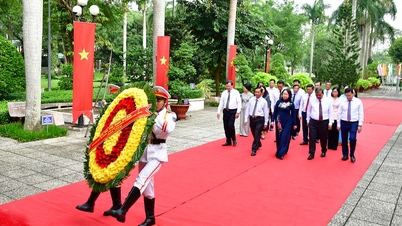















Comment (0)